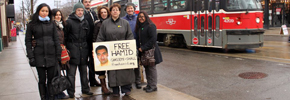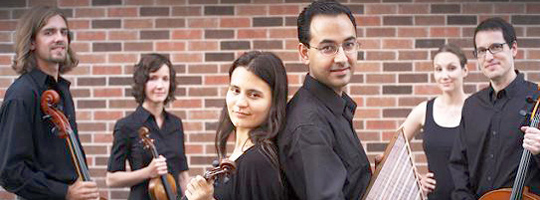Sima Sahar Zerehi – With a motto like “Diversity Our Strength” you would expect Toronto to have an ethnically diverse City Council led by individuals coming from the same communities that make up half of the city’s population.
After all, everyone knows that Toronto is a city of new immigrants. In fact, half of all immigrants living in this city have been residing in Canada for less than 15 years.
Speaking another language is the norm in the GTA with nearly half of the population with a mother tongue other than English or French.
The majority of Torontonians consider themselves immigrants with only eleven percent identifying as Canadian in origin.
So why is it that when you look at the halls of power in this city, ethnic and immigrant communities are nowhere to be seen?
Unfortunately, when looking at the 44 Councilors currently representing Toronto’s diverse neighborhood, only a few belong to an ethnic community and even less are first generation immigrants.
Brown, black and yellow complexions and names like Singh, and Kwon and even Amiri may be a common occurrence on the streets of Toronto, but stroll into City Hall and all you see are pale faces and all you hear are Anglo names like Miller, Ford, Hall and Perks.
Not surprisingly, issues that matter to immigrant and ethnic communities are often relegated to the backburner as permanent residents in this city don’t have a right to vote and politicians choose their cause célèbre in order to appease their voting base.
These realities are some of the reasons why when it comes to electoral politics, particularly municipal politics, many immigrants simply tune out.
Why should we care about a political process and a body of government that doesn’t represent us or strive to engage us?
For most new immigrants, it takes over five years from the date of arrival to Canada to gain full citizenship and in turn the right to vote. That’s five years of living and working in a community that you don’t have any say over.
It’s no coincidence that after so many years of political exclusion, when finally allotted the opportunity to vote, many immigrants simply revert to their former practice of ignoring Canadian politics.
Although there are lots of good reasons why ethnic and immigrant communities like ours choose to change the channel and flip the page when it comes to electoral coverage, it’s time to break the cycle.
It’s 2010 and we need to finally stand up and claim our voice as the majority in this city rather than erasing ourselves by acting like a silent minority.
Although, its easy to place the blame on a system that strives to eliminate us from the decision making process, we must also take a good look at ourselves.
I find it amazing that as Iranian-Canadians we are extremely quick to take a position and even spring to action on issues related to Iranian foreign and domestic policy but we remain immobile when it comes to a political process that affects our homes, jobs, schools and neighborhoods in the city that we have adopted as our new home.
In many wards across the GTA, Iranian-Canadians represent a significant number of possible voters. That means that our community can make a tremendous impact on the shape of municipal politics in the newly elected City Council if we chose to engage rather then disengage from the political process.
With one mayoral candidate of Iranian decent in the race and several other candidates for City Council from our community, this election is our chance to put Tehranto on the map.





نه بر مقام انسان آمدیم
بر مقام ابزار کار
نه برمقام شهروند
برمقام سودی برسرمایه
نیمه شهروندیم